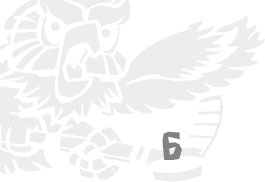
Travis’s mother and father sat up late with him that night. He’d tried to sleep, but couldn’t. He lay in his bed and tried to turn his thoughts away from everything that had happened, but each time he was about to drop off to sleep, the day’s events would swarm back into his head.
His father was on the telephone. Mr. Lindsay had called the police, the hospital, Muck, Mr. Cuthbertson, Nish’s parents, Data’s parents, the police again.
“It seems no one got the licence-plate number,” he said at the end of this final call. His voice sounded tired, discouraged.
Travis was drinking hot chocolate. It seemed to lessen the sting in his throat, but he still didn’t think he could talk without starting to cry.
“What about the car?” Mrs. Lindsay asked.
Mr. Lindsay shook his head. “No identification. There was so much snow over it, none of the kids could even tell what kind it was, let alone what colour.”
“The man who stopped, didn’t he see anything?”
Mr. Lindsay shook his head sadly. “It was Art Desmond. The real-estate guy. He was using his cellphone when the other guy drove off. He didn’t even get a look.”
The police wanted to come around and talk to Travis in the morning. He wouldn’t, after all, be going to school, but this was hardly the day off he and Nish and Data and the rest had imagined. Travis had no idea what he could tell them. He hadn’t seen the driver’s face. It was too dark, and his tuque had been pulled down too low.
Nish’s parents telephoned from the hospital. Nish had a broken wrist, but apparently it had set easily. He’d have to wear a cast for four to six weeks.
“Then he’ll be as good as ever,” Mr. Lindsay explained.
Good as ever? Travis wondered. Nish? He was tempted to make a little joke, but the impulse quickly died.
The news about Data wasn’t as promising.
“He’s still in surgery,” Mr. Lindsay said.

Two police officers came to the house to interview Travis. One was a young woman, who was very concerned about how he felt. The other was an older man, who acted almost as if the Owls were the real criminals here. Twice he told Travis they could be arrested for “hitching.” Twice Travis told him they’d never do it again. He wished the policeman would believe him; he had never been more serious about anything.
They went over the facts again, but they didn’t add up to much. Travis couldn’t think of anything to help in their search for the missing driver.
“There was a bottle found at the scene,” said the woman officer.
“What sort of bottle?” Mr. Lindsay asked.
“Seagram’s V.O. rye whisky, thirteen-ounce–commonly known as a mickey,” the policewoman answered. “Empty.”
“I think I heard something fall out of the car,” said Travis.
“You’re certain of that, son,” the older officer said sternly.
“Yes,” Travis said.
“There must be fingerprints on the bottle,” Mrs. Lindsay suggested.
The older officer looked at her quickly. “Fingerprints only mean something if you have someone you can match them to, ma’am,” he said. “Besides, he was probably wearing gloves. It was cold that day.”
“We can’t even be absolutely certain it was his bottle,” said the younger officer with a sad look.
“I think I smelled it,” said Travis.
Both police officers turned back to Travis, keenly interested.
“Smelled what?” the older officer demanded.
“When he opened the door,” Travis said, “this strong smell came out. I thought it was alcohol.”
“You know what alcohol smells like?” the older officer asked.
“I think so.”
“Think so isn’t good enough,” the officer said. “Would you be confident enough to tell a judge and a full courtroom that you smelled alcohol?”
“Before we get to court,” Mr. Lindsay cut in, “you’re going to have to come up with a suspect, aren’t you?”
The older officer looked up, as if challenged. “That’s fairly obvious, sir.”
“And have you?”
“Have we what, sir?”
“Have you come up with a suspect.”
“Not so far. No.”

Around noon they got word about Data. One of the bones at the base of Data’s neck had been broken in the accident, but the surgery had gone well. He had been fitted with a thick wire “halo” around his head to keep his neck absolutely still. It was attached by screws that had been planted into his skull, and rested on his shoulders.
Travis shuddered when he heard this. A “halo” suggested good behaviour, but they had been doing something terribly foolish–and it had all been started by Travis.
Travis was feeling desperately sorry for himself when the telephone rang again.
“It’s for you, son,” his father said, handing the receiver across the table.
“Hello?” Travis said uncertainly.
“It’s Muck,” a deep voice announced.
“You’re our team captain, Travis,” Muck said. “I want you to make the calls. I want the whole team at the hospital at five o’clock. Understand?”
“Y-yes,” Travis said, uneasily.
“We’re going to see Data,” Muck said.
“Is it all right?” Travis asked.
“Yes, it’s all right. He’s asked for the whole team,” said Muck. “Are you okay?”
Travis knew he wasn’t. “I guess,” he said.
“Be there,” Muck said. “And be captain, okay?”
Travis knew what Muck meant. He wanted Travis to make sure the visit went right. Muck would expect the same if they were down two goals in an important game: no matter how they might feel inside, the Owls had to believe things would work out, that in the end they would succeed together as a team.
“Okay,” Travis said.